Stand-up comedy may have been born in the United States of Vaudevillian heritage, but the format’s simplicity and endless flexibility have attracted fans and followers across the globe. In Saudi Arabia, its popularity can be attributed to one man. Fahad Albutairi is often credited as the first Saudi to perform stand-up comedy professionally, following a performance in 2008. Now the 30-year-old comic lords over a massive YouTube empire that has racked up nearly a billion hits. His next challenge is to change the way Saudis view entertainment forever.
In a country known for political conservatism, comedy may seem an unlikely hit. But Albutairi says that young people in the region—a huge contingent of under-30s armed with smartphones and high-speed internet—are cautiously experimenting with comedy via outlets like YouTube. “They’re not so much willing to test the boundaries as basically not sure what their boundaries are,” he explains over a Skype call from Riyadh. “A lot of them are still trying to find their opinions, their own voices in a quick-developing world.”
In 2010, Albutairi began working with friends to produce La Yekthar Show, a monologue-based comedy that touched on social and political topics in a deliberately reserved manner. Within months, Albutairi and his colleagues were pulling in millions of hits on YouTube, and in 2011, they launched their own network, which oversees dozens of subchannels and shows. “We called it Telfaz11”—“telfaz” means television in Arabic—“because we saw it as an alternative to actual TV programming in the Middle East, which was lacking in quality and relevance and a lot of other things,” he says.
The challenge, Albutairi continues, is providing thought-provoking comedy that doesn’t upset viewers. “Constraints that are formulated by the conservative culture of the population are way tighter than government regulations,” he explains. “I’ve said this before: When I release something that’s a little edgy—if not crossing the red line, kind of walking by it—I piss off the audience before I do the government.”
Albutairi grew up in Saudi Arabia speaking both Arabic and English at home with his father, a corporate banker, and his college-educated mother, a relatively rare distinction for her generation. In 2003, he attended the University of Texas at Austin under a scholarship program run by the Saudi Arabian Oil Company, or Saudi Aramco, the national oil and gas company based near his hometown of Khobar. He majored in geophysics, but Albutairi soon found he was more interested in the local comedy scene than his studies.
Until recently, comedy in Saudi Arabia had been limited to imported American sitcoms like Seinfeld, Friends, and Frasier. “As far as stand-up comedy, I had no exposure whatsoever until I went to the U.S. and actually started seeing stand-up specials on Comedy Central,” he says. He quickly became obsessed, estimating that he watched more than a hundred specials before eventually deciding to try his own hand. He describes his first attempts as “complete failures,” but in time he began to draw from his unique position “as a Saudi student in the U.S., post 9/11, in Texas, and going through culture shock. And that’s when audiences started relating more.” He chuckles, recalling his early attempts at jokes, like the story of explaining the “that’s what she said” joke to his father. “That was fun. And then he ended up asking me, ‘Who is she and what did she say?’”
[quote position="full" is_quote="true"]But what we’re trying to do is encourage them to all go out and say something, or at least try to push their own limits.[/quote]
He played open mics and local clubs in Austin for two years before returning to Saudi Arabia to work for Aramco, thinking his comedy days were done. But in 2008, when the “Axis of Evil Comedy Tour”—comprised of prominent Middle Eastern comedians combating post-9/11 prejudice with humor—was stopping in nearby Bahrain, he contacted the organizers and landed a spot as an opener. “A lot of people were telling me that I was the first Saudi stand-up comedian to appear professionally onstage in a ticketed show of that caliber,” he says. “I went from performing in local comedy clubs to performing in front of 2,000 people each night.”
It helped kick off a desire for comedy in the region. Stand-up shows started popping up in several Gulf states, including Saudi Arabia. And scenes even began reflecting the nuance of particular areas. “People started realizing that maybe we should localize the material a little more, as in perform it in Arabic, because we used to do a mix or purely English.” By 2010, Albutairi was being called the “Jerry Seinfeld of Saudi Arabia.”
With the success of Telfaz11, Albutairi and his colleagues are now thinking about their next steps, which include expanding into television production and film. Albutairi also recently starred in the Middle Eastern movie From A to B, which garnered a nomination at the Abu Dhabi Film Festival.
“The next natural step would be to get into film, but it would be a huge challenge, especially in a country that doesn’t have cinemas,” he says with a laugh. “We’ve already kind of started a movement in the region for individually driven efforts. And more people started realizing that anyone can pretty much shoot content, edit, and put it up online for free.” With the help of social media and the widespread proliferation of mobile phones in the region, there’s ample space for growth. “The whole region is driven by youth with smartphones.”
His main goal with the network isn’t a political agenda, but an artistic one. “What we would like to achieve [...] is to improve local taste,” he says. “Introduce people to different genres of comedy: satire, deadpan, dark humor, observational, character play, sketches, series, sitcoms—everything. We still haven’t achieved even 10 percent of that yet.”
But Albutairi hopes that Telfaz11 will ultimately nudge its young audience into action. “Some things that the older generation would consider untouchable, especially when it comes to tradition, the new generation finds stupid or unfounded, or something that can even be seen as an obstacle for further development,” he says. “But they’re still formulating their own opinions about this as they go. When I started doing this, I was 23. I’m 30 now, so I’m still within that generation. We’re all growing up together, so we’re all finding our own voices at the same time. But what we’re trying to do is encourage them to all go out and say something, or at least try to push their own limits.”





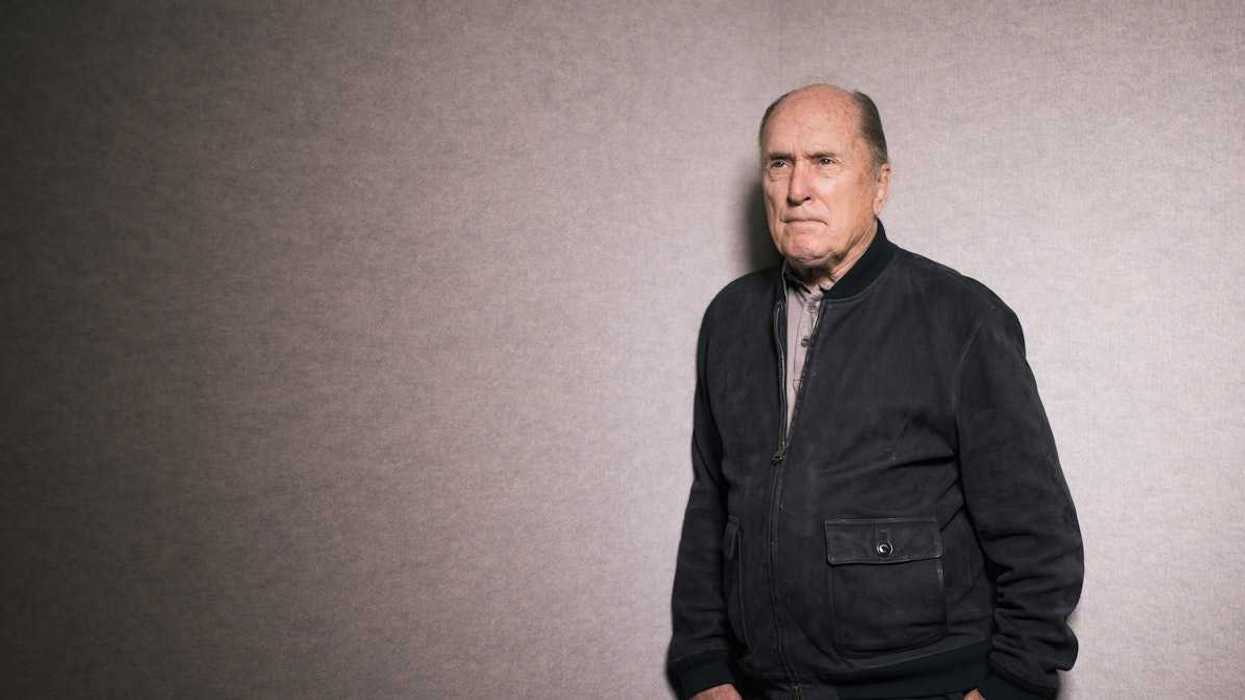











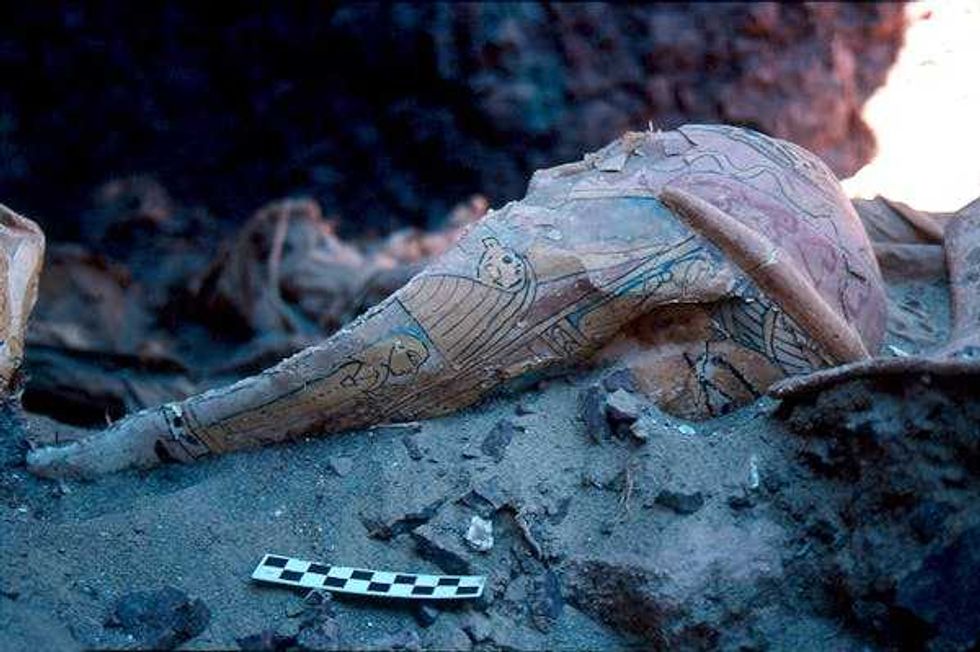 Reuse over time and looting shifted and damaged the contents of an ancient Egyptian tomb. This displaced mummy mask could have a relationship to other artifacts already in museums around the world.Carlo Rindi Nuzzolo
Reuse over time and looting shifted and damaged the contents of an ancient Egyptian tomb. This displaced mummy mask could have a relationship to other artifacts already in museums around the world.Carlo Rindi Nuzzolo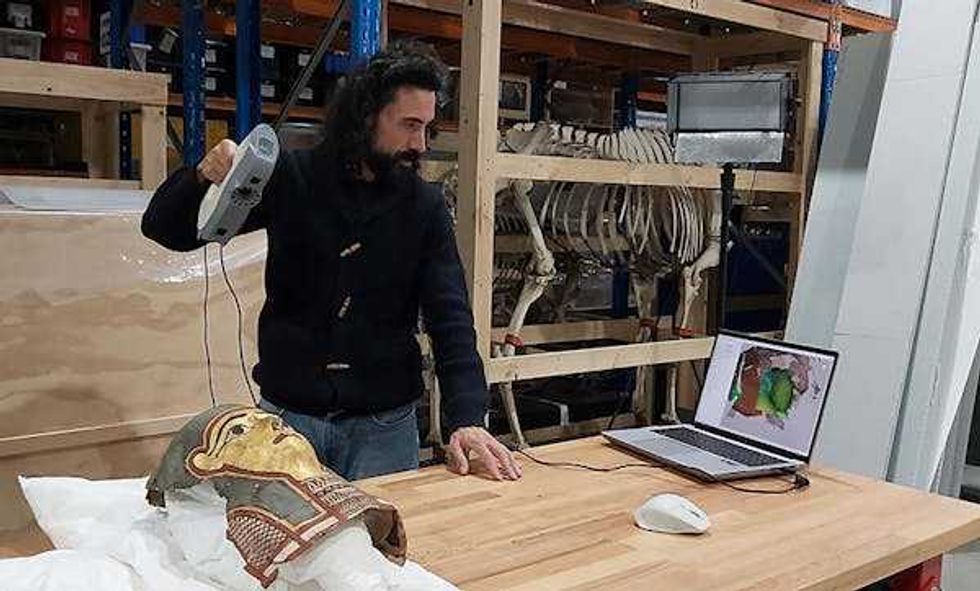 Archaeologists can use handheld 3D scanners to noninvasively map objects in very fine detail.Carlo Rindi Nuzzolo
Archaeologists can use handheld 3D scanners to noninvasively map objects in very fine detail.Carlo Rindi Nuzzolo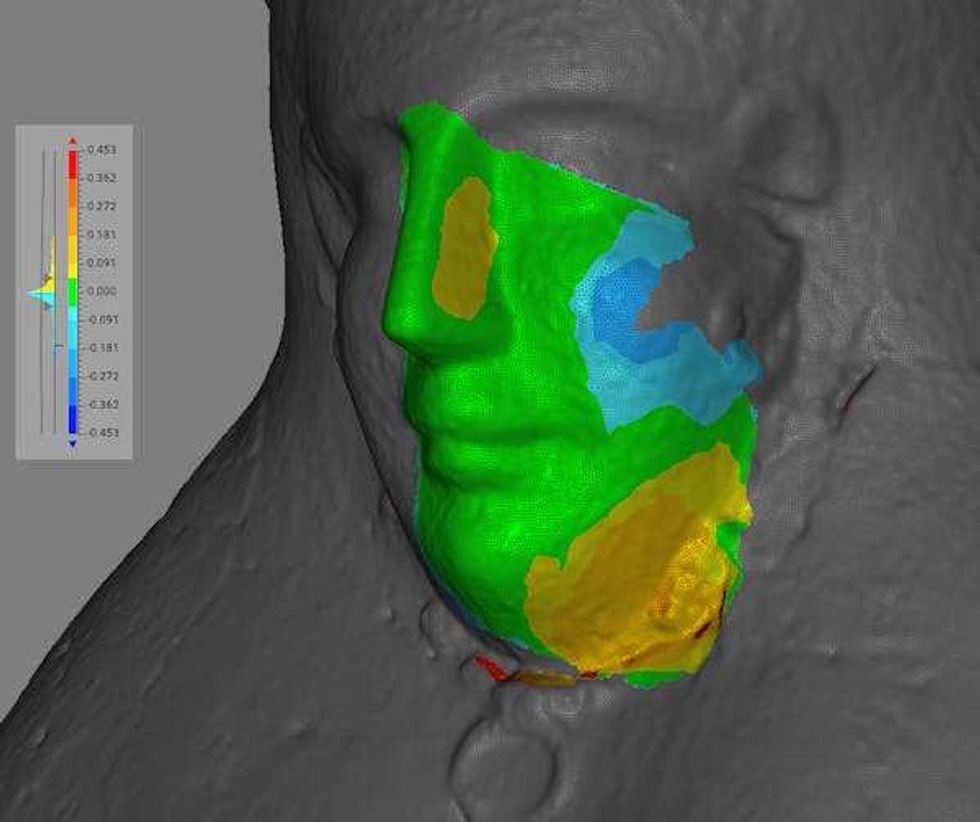 The mask reference surface is shown in gray, while the aligned fragment is colored based on the surface-to-surface distance at each point. Green indicates a good match with almost no distance. Cooler colors show areas where the fragment lies below the reference mask, and warmer colors show where it lies above.Carlo Rindi Nuzzolo
The mask reference surface is shown in gray, while the aligned fragment is colored based on the surface-to-surface distance at each point. Green indicates a good match with almost no distance. Cooler colors show areas where the fragment lies below the reference mask, and warmer colors show where it lies above.Carlo Rindi Nuzzolo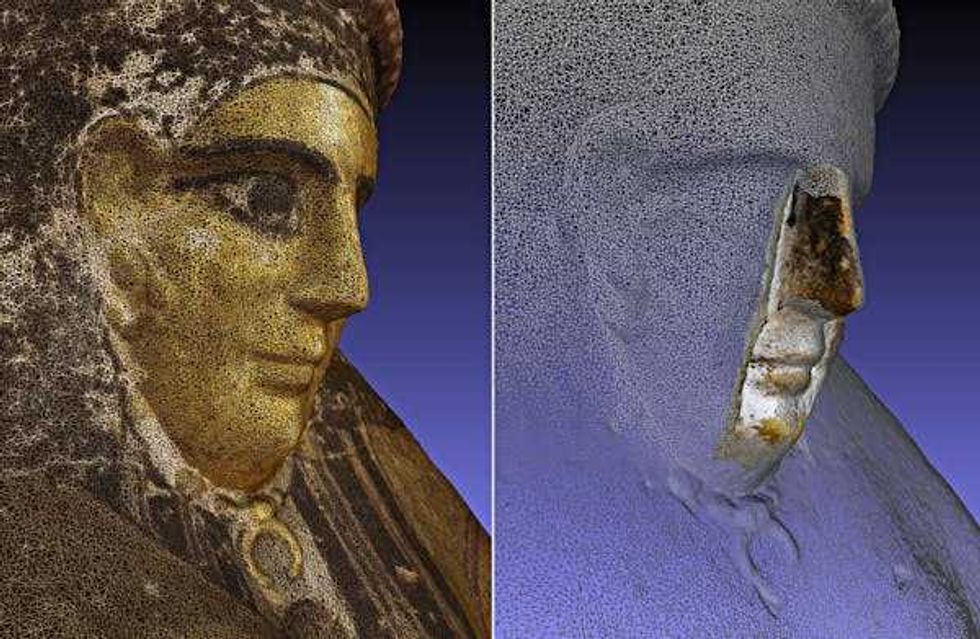 The mask fragment was a very close match to a complete mask, suggesting they were made in the same mold.Carlo Rindi Nuzzolo
The mask fragment was a very close match to a complete mask, suggesting they were made in the same mold.Carlo Rindi Nuzzolo
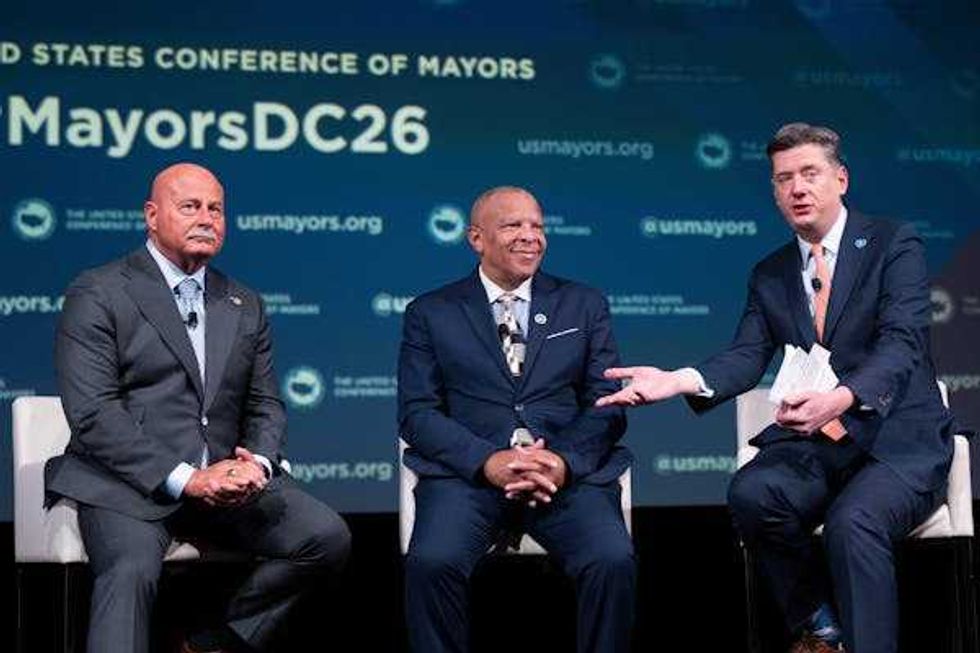 When mayors come together, they often find they face common problems in their cities. Gathered here, from left, are Jerry Dyer of Fresno, Calif., John Ewing Jr. of Omaha, Neb., and David Holt of Oklahoma City.
When mayors come together, they often find they face common problems in their cities. Gathered here, from left, are Jerry Dyer of Fresno, Calif., John Ewing Jr. of Omaha, Neb., and David Holt of Oklahoma City.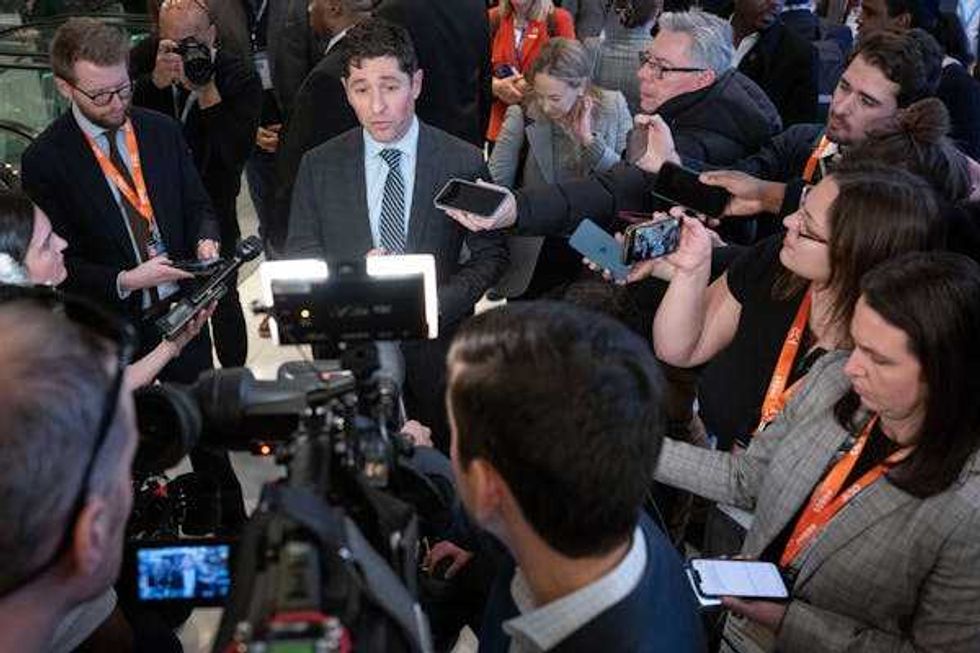 Mayors can find themselves caught up in national debates, as did Minneapolis Mayor Jacob Frey over the Trump administration’s immigration enforcement policies in his city.
Mayors can find themselves caught up in national debates, as did Minneapolis Mayor Jacob Frey over the Trump administration’s immigration enforcement policies in his city.
 A labratory mouse checks out a microscopeCanva
A labratory mouse checks out a microscopeCanva
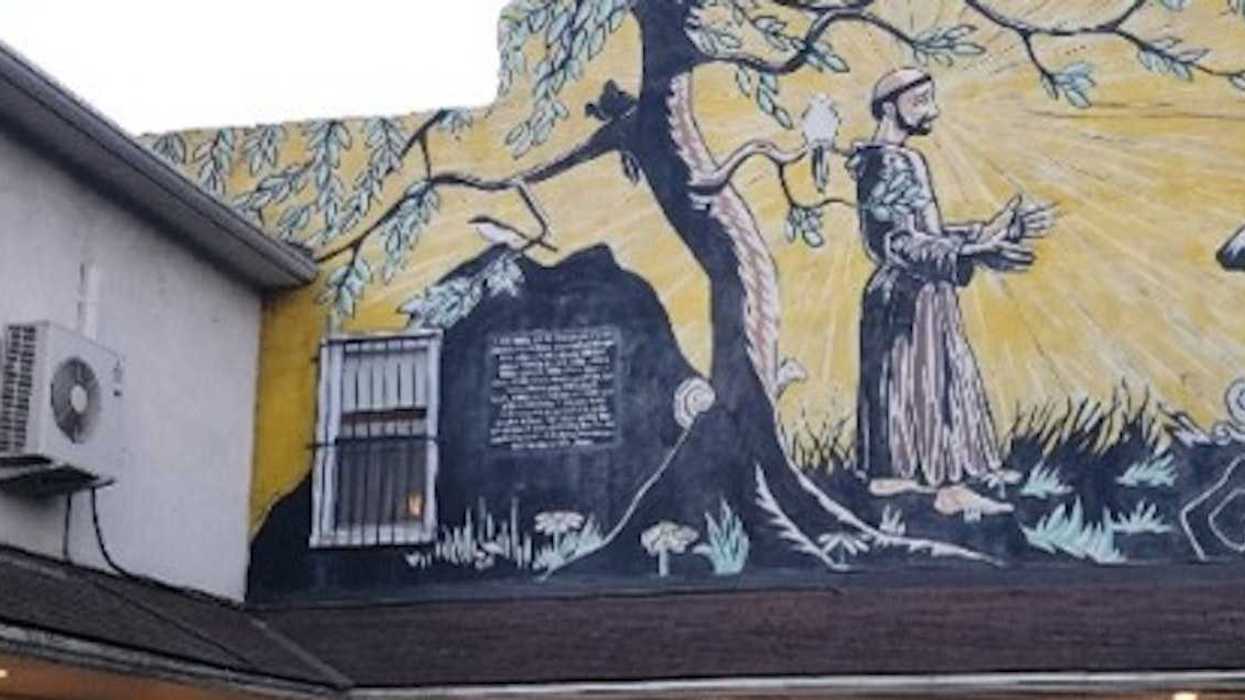
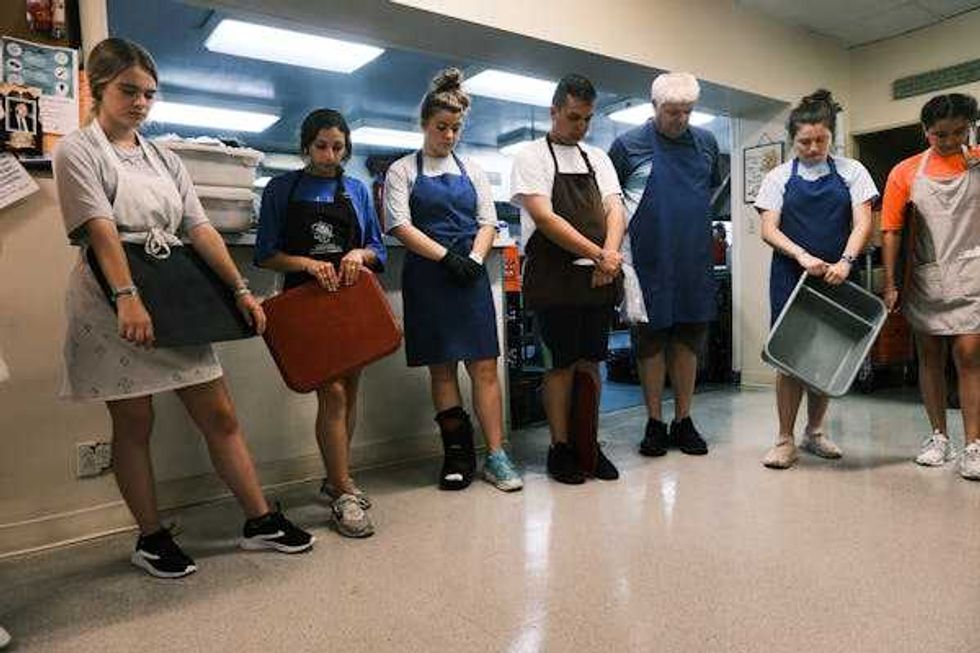 Volunteers at the St. Francis Inn pray together before serving a meal on July 19, 2021.
Volunteers at the St. Francis Inn pray together before serving a meal on July 19, 2021. Police close down a section of Kensington Avenue to clear a homeless encampment on May 8, 2024.
Police close down a section of Kensington Avenue to clear a homeless encampment on May 8, 2024.
